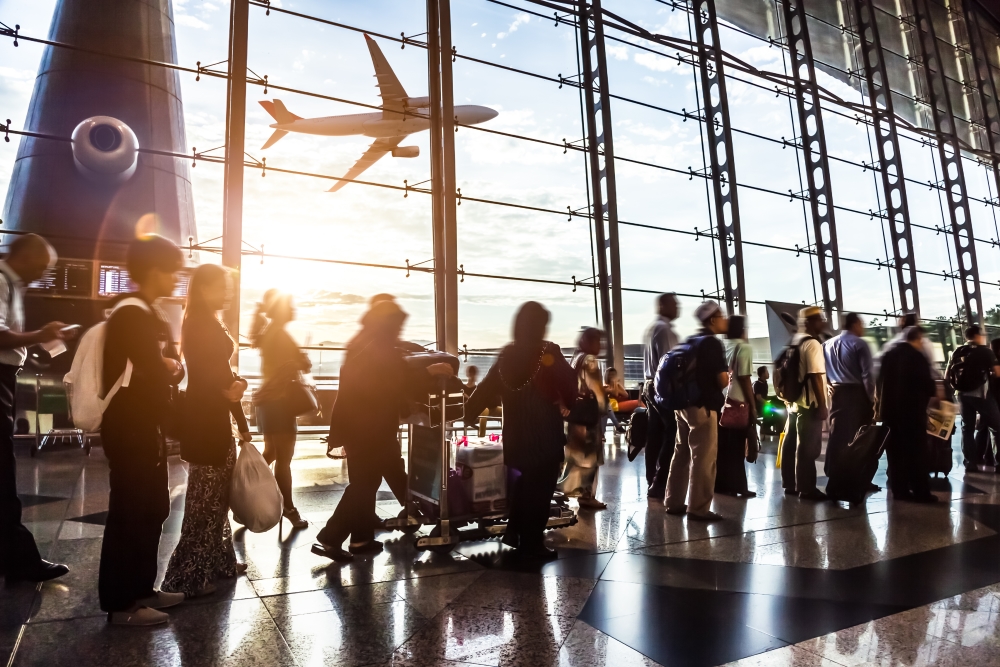Recent changes to the consumer protection landscape and what they mean for airlines and travel companies operating to and from the UK

This website will offer limited functionality in this browser. We only support the recent versions of major browsers like Chrome, Firefox, Safari, and Edge.




It has been a busy two months in the world of UK consumer protection. From the activation of previously dormant parts of the Digital Markets, Competition and Consumers Act 2024 (the “DMCCA”) and the publication of accompanying guidance by the Competition and Markets Authority (CMA) and the Advertising Standards Authority (ASA), to the announcement of a new consultation regarding the Package Travel and Linked Travel Arrangements Regulations 2018 (the “PTRs”), there are plenty of developments for businesses to get their heads around.
In this brief overview, we provide a summary of the most significant changes for the aviation industry, with a particular focus on airlines operating to and from the UK.
On 6 April 2025, certain provisions concerning “Unfair Commercial Practices”, or “UCPs”, were activated in the DMCCA. Two days’ prior, on 4 April 2025, the CMA published accompanying guidance to explain how the new provisions were intended to work and how the CMA intended to enforce them.
The UCP provisions in the DMCCA effectively replicate the Consumer Protection from Unfair Trading Regulations 2008 (the “CPUTR”), which have now been revoked. They contain the same provisions prohibiting aggressive commercial practices, the use of false or misleading actions or omissions, and certain specially designated “unfair” practices (including falsely claiming to be a signatory to a code of conduct) that were set out in the CPUTR. However, in addition, the UCP provisions contain two important new prohibitions: a prohibition on the use of false reviews, and a prohibition on “drip” pricing.
The new prohibition on “drip” pricing applies to all “invitations to purchase”. This is a broadly defined concept that effectively covers all adverts and interactions that may allow a passenger to make a transactional decision (i.e., whether or not to purchase a specific good or service). This would cover, for example, a television advertising campaign publicising a seasonal flight sale, as well as specific adverts displayed on an airline’s website.
“Drip” pricing refers to the practice of advertising a headline price to consumers before slowly adding further mandatory charges throughout the booking process.
The prohibition means that businesses must ensure that consumers are given the total mandatory cost of any product or service during any “invitation to purchase.” A “mandatory charge” refers to any charge that cannot be avoided as part of the purchase. In the context of an air fare, this would include costs like airport charges and Air Passenger Duty (APD). The new prohibition is therefore aligned with the requirements of Article 23 of Regulation (EC) No 1008/2008, which specifies that the final price of any air fare must be displayed at all times, including all applicable costs (such as airport charges) that are unavoidable and unforeseeable.
A “mandatory charge” does not, however, include optional costs that are not unavoidable as part of the purchase. For airlines operating to and from the UK, this means that additional costs relating to designated seats, priority boarding and baggage do not currently need to be included in the cost of any air fare displayed in an invitation to purchase.
This will continue to be the case for as long as such costs continue to be deemed “optional.” In the EU at least, it is not clear how long this will be. There is now growing pressure to treat hand luggage as an essential part of the journey, with a Court in Salamanca this month ruling that Ryanair had breached Spanish consumer protection law by treating hand luggage as a “chargeable extra”. If that approach were to be followed in the UK, then similar costs would be categorised as “mandatory” charges and would need to be treated accordingly under the DMCCA.
Penalties for breaching the DMCCA can be severe (e.g., financial penalties of up to 10% of global turnover) and can now be imposed much more swiftly, as the CMA has the power to impose punishments on businesses without going to Court first. The CMA has indicated that it will give businesses a three-month grace period to ensure compliance with the new UCP provisions but, once that deadline has passed, it is likely that very little leniency will be shown to offenders.
The fun does not stop here. Although most of the provisions of the DMCCA are now in force, there are still some that have not yet been activated. Foremost among these are provisions relating to subscription contracts, which are due to come into force in Spring 2026, and which are likely to be of real relevance to airlines operating to and from the UK offering such schemes to their passengers.
There is an obvious overlap between the UCP provisions in the DMCCA and the advertising rules contained in the Broadcast and Non-Broadcast Codes of Advertising (BCAP and CAP Codes) applied by the ASA. It therefore comes as no surprise that the ASA has taken the opportunity to update the CAP and BCAP Codes in conjunction with the implementation of the UCP provisions in the DMCCA.
The changes to the CAP and BCAP codes largely mirror the changes to the DMCCA. In particular, they contain specific provisions intended to deal with “drip” pricing, which is now prohibited in advertising. Additionally, the ASA has indicated that it will be taking a more robust approach towards the impact of advertising on vulnerable users, regardless of whether the advertising in question was targeted at such users.
The ASA has clarified that it considers such users to include physically disabled people. In an aviation context, this means that airlines should be mindful of the impact that their advertising may have on passengers with reduced mobility (PRMs), even if they are not the target of any given advert.
Of course, the CAP and BCAP Codes do not have the status of law, and the ASA has no powers by itself to take enforcement action against offending parties, or to issue financial penalties. The ASA is, however, able to refer matters to the CMA for further investigation, particularly where it considers that any given advert also constitutes a breach of the DMCCA, and its rulings can also cause considerable reputation damage for guilty parties.
Airlines are therefore well advised to ensure that their advertising campaigns comply with the BCAP and CAP Codes, as appropriate. This is not least because this is a good way to ensure compliance with the DMCCA and Regulation (EC) No 1008/2008.
In early April, the UK Government also announced that it was consulting on potential amendments to certain aspects of the PTRs. The changes under consideration are primarily relevant to package travel organisers (e.g., a proposal to remove certain domestic packages from the scope of the PTRs) but buried within the consultation there is also an area that is directly relevant to airlines.
Industry observers will be aware that, following the High Court’s decision in On the Beach Limited & Ors v Ryanair UK Limited & Anor in October 2023, a new and controversial cause of action came into being that allowed organisers to claim financial compensation from suppliers whose actions or failings contributed to an event causing the organiser to pay compensation or give a price reduction to a consumer. This effectively created a free-standing right allowing organisers to claim financial compensation from airlines in the event that a flight cancellation or major change forced the organiser to provide a refund or price reduction to a consumer.
At the moment, the freestanding right of redress is not subject to any time limits. This means that airlines, and other suppliers, do not currently have to provide the requested financial compensation to the organiser within a set amount of time. The consultation is considering making a change to this situation so that suppliers are required to pay compensation to the organiser within 14 days.
The burden on airlines under the PTRs following the decision in On the Beach v Ryanair is already very onerous. If the proposed change is accepted, the burden will become even more arduous. This will be especially so in the case of mass disruption events, in which case airlines may be on the hook to pay very large sums to package travel organisers within a very short period.
The consultation is open until midnight on 30 June 2025. Airlines who are likely to bear the brunt of this particular change to the PTRs should take the chance now to make their voice heard before then.
The recent changes to the consumer protection landscape are potentially significant for airlines operating to and from the UK. There is limited time available to implement any necessary changes to ensure continuing compliance with UK law, as well as to input on incoming legislative changes that are currently under consideration.
If you would like any assistance in dealing with these changes within your business, please contact our regulatory specialists Chloe Challinor, Patrick Bettle and Fergus McLaverty in our Aviation team.
Want more Burges Salmon content? Add us as a preferred source on Google to your favourites list for content and news you can trust.
Update your preferred sourcesBe sure to follow us on LinkedIn and stay up to date with all the latest from Burges Salmon.
Follow us